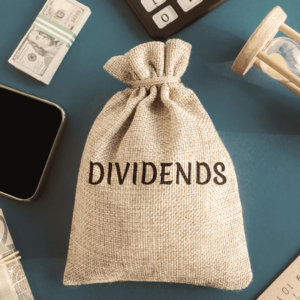13/03/2025
Should I take dividends vs salary?
This is a question very commonly asked by clients and unfortunately there is no one size fits all solution. The most tax efficient option on dividend vs salary will depend on a variety of factors including the following:
- What rate of Income Tax you will pay on the income?

- What rate of Corporation Tax (CT) the company pays?
- The company’s distributable reserves (which dictate how much dividend income, if any, can be paid).
- Whether you intend to make personal pension contributions (“earnings” are required for tax relief which include salary, but not dividends) .
- Your mortgage terms.
Historically, there was a trend for owner-managed businesses to extract minimum salary from the company and take the balance of funds required as dividend income. The salary levels were often set at a point whereby they were not subject to Income Tax (being lower than the personal allowance) or National Insurance Contributions (NIC) but were sufficient to meet the conditions to be a qualifying year for state benefit (e.g. state pension) purposes. Unfortunately, this planning no longer works since the changes to employers NIC in the October 2024 budget, which lowered the NIC threshold to £5,000, so it is now lower than the £6,500 required for a qualifying year.
Whether it is better to take dividends vs salary also changed during covid, when the bounceback loans were based on salary, which scuppered a number of taxpayers who had always followed the above planning. Some taxpayers have also found that by adopting the low salary/high dividend model they have had issues securing mortgages, or paid higher interest rates than they otherwise would have. There are therefore factors other than tax that should also be taken into account.
However, if we do focus on tax, there are various ways to look at things. If you purely consider the fact that there are no NICs payable on dividends, but there is on salary, then dividends are clearly more tax efficient. If we also consider that Income Tax rates on an individual are lower for dividends than for salary, then again, dividends would be seen as the more tax efficient choice. However, if you are an owner-managed business, then you are only looking at part of the picture by considering the individual tax position in isolation. As salary (and the associated NIC) is CT deductible, but dividends are not, if you look at the combined position, it can be overall more tax efficient for a company to pay salary than dividends. This will depend on the rate of CT the company pays and the rate of Income Tax the recipient pays.
If you would like to discuss your current dividends vs salary structure in more detail, please contact Gemma Hedges on 023 8046 1259, or email Gemma Hedges.



